Sri Lanka’s tea plantations the backdrop to nostalgic stay in Haputale
A journey to Sri Lanka’s tea plantations offers a nostalgic trip down memory lane.
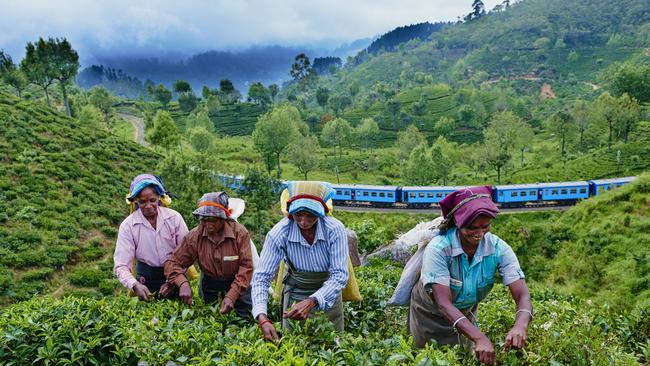
The first time I went to Haputale was to challenge Mrs Queenie Daniel to a game of Scrabble. Mrs Daniel was renowned throughout Sri Lanka’s tea country as a formidable (if not entirely scrupulous) board game player.
But when I checked into Hyacinth Cottage, her quaint B&B, Mrs Daniel was off visiting relatives in Kandy. Her son greeted me instead. He did not play Scrabble but he did broil me buffalo hearts for dinner, a meal as awful and unforgettable as it sounds. Despite these setbacks, I was swiftly smitten with Haputale. The French have a saying, coup de coeur — a blow to the heart, a crush — to describe powerful life experiences that leave you speechless. That’s how I felt about this scrappy town clinging to an escarpment high in the sky, the earth falling away on all sides to rolling hills and emerald plains extending to infinity. That was almost 20 years ago. I hadn’t been back to Sri Lanka since but late last year got the chance to return and my travel agent, India Unbound, asked was there anywhere special I would like to see. So I said, Haputale.
Few tourists go to Haputale. That’s a great part of its appeal. The travellers crowding the toy-like train that snakes its way from Colombo up into the island’s misty high country mostly disembark at Nuwara Eliya, a pretty town overrun with backpackers. I am the only tourist who gets off at Haputale. Driver Hassan Mohammed meets me at the station to take me to Thotalagala, a former tea planter’s bungalow reopened as a seven-room hotel on Christmas Eve, 2015. Mohammed has worked for the hotel for nine months but is as wide-eyed as I am at the scenery along Dambatenne Road.
Clouds and mist appear then vanish like a magic trick that never tires, revealing hillsides sculpted into Seussian shapes: feathery mara trees, topiary tea hedges and pollarded Truffala trees (not their real name, obviously). The mountain range forms a vast natural amphitheatre that peaks at Lipton’s Seat, some 450m above us (we’re currently at 1430m) and declines all the way to the coast. On a clear night you can see the flash of Hambantota lighthouse, almost 150km distant.
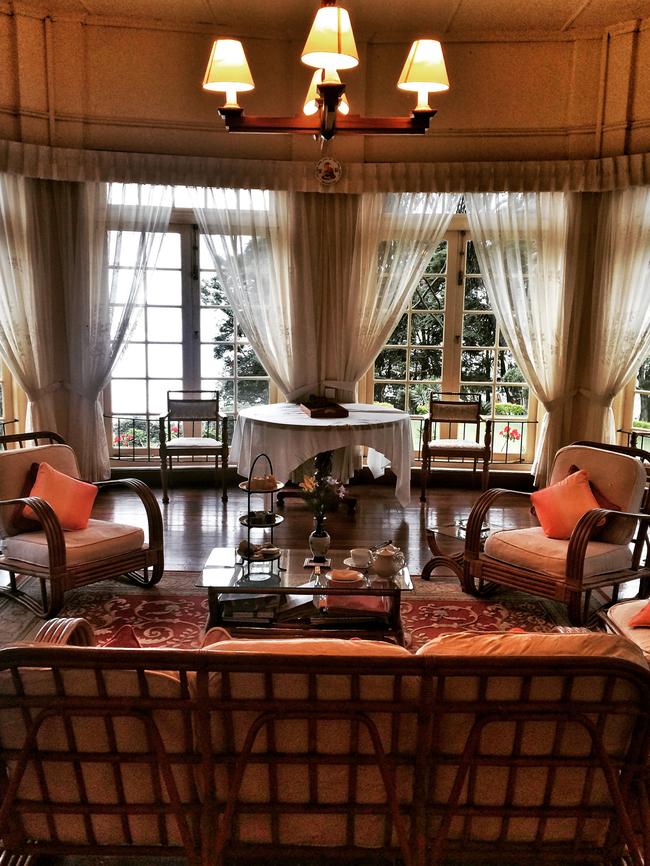
Mohammed is from a village 20km away. As we motor along slowly, swooning at the panoramas, I ask if his village is this beautiful too. “Nooo!” he says. “Haputale is one of the best places I ever ...” and his voice trails off because, really, there are no words. Pink crocuses bloom on the verges as we descend a narrow road, past the “Sprayers’ Changing and Bathing Cabin”, to an elegant bungalow perched on the escarpment in extravagant gardens of African tulips and golden rain trees. Thotalagala’s beaming assistant manager Deepika Jayawardene gathers me on the veranda and leads me inside for a cuppa. The tea leaves were grown on this very estate, part of the 6000ha Agarapatana Plantations that include Dambatenne, the tea gardens planted by Sir Thomas Lipton himself.
Thotalagala’s suites are named for notable and notorious colonial characters, from tea entrepreneur Lipton to the abominable hunter Major Rogers, infamous for slaughtering more than 1400 elephants before he was struck dead by lighting in 1845. “They say that lightning continues to strike his grave today because nature is still angry with him,” Deepika nods wisely.
My junior suite, scented warmly with cinnamon, is called George Pilkington after an Englishman who came to Haputale on horseback in 1898 with Lipton and Thomas Villier and “roamed the cold and dangerous hills”. A typed note in my room explains the trio was, predictably, enchanted by the beauty of this countryside. “They ‘felt a whiff of England and Scotland in the atmosphere’ and enhanced the beauties of nature by clearing hill slopes to plant tea.”
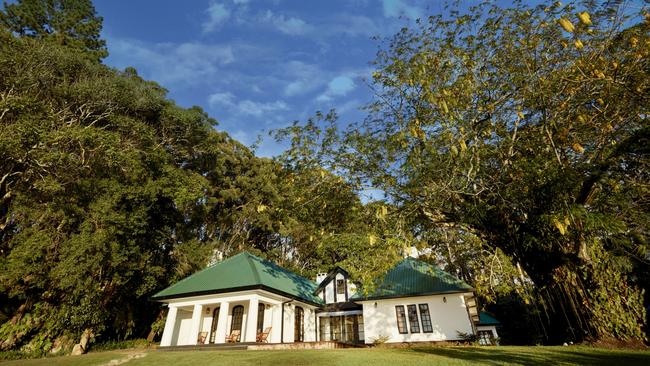
The generous bones of the hotel are very much of an era (the bungalow was built a century ago) but interiors feel brand new. Furnishings are a mix of smartly restored antiques and contemporary pieces that share the same DNA, so guestrooms such as mine feel both timely and timeless with an original writing desk and modern chaise and armchair in matching grey velvet. Ceiling-to-floor drapes frame French doors leading to a private veranda and the rear garden.
I while away hours between the lounge, with its ancient upright piano (Deepika advises “some notes are not working”) and tall windows on to the astonishing world outside; the 20-seat dining table where guests feast on freshly baked breads and a cockle-warming curry leaf and lentil soup that I will crave for the rest of my life; and the breakfast terrace with its cinematic scenery shimmering and shifting in the clouds.
The next morning I feel like I’ve woken in a large family home, privy to its mundane sounds. Curled in bed against the cool dawn I hear the distant hiss of hot water shooting into a pot and then, minutes later, the footsteps of butler Manjula Rathnayake coming down the corridor to deliver my cinnamon tea promptly at 6.30am. Propped up in bed I hear sirens ring out over the hills, calling the tea pickers to work at 7am, and again just before 7.30am.
I have an appointment at the tea factory too. Mohammed and I set off mid-morning down a narrow road hedged with hibiscus, past a delivery van bearing the windscreen legend “God is Grade”. A road sign declares the patches of remnant forest we see between tea plantations are home to barking deer, porcupines and crested serpent eagles. Pickers with sacks yoked to their skulls and draped down their backs negotiate the steep plantations with the agility of goats and the industry of ants, picking an average 20kg of leaves in a day. Most of those tiny tips end up at Dambatenne, a three-storey timber factory, circa 1890 and apparently unmodernised since. It is positively Dickensian inside, infused with a sepia-toned light possibly due to the tea-stained interiors.
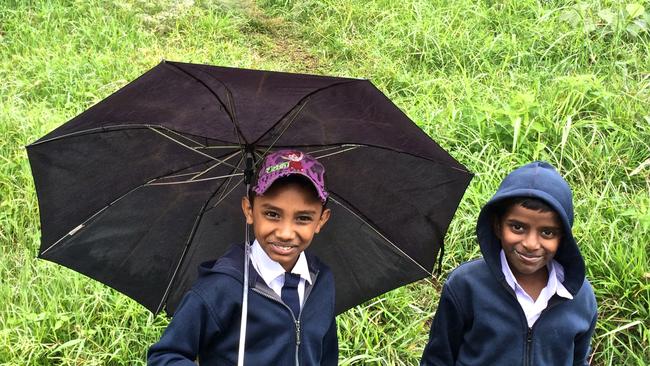
My guide is a Mr K. Marx. The K stands for Karuppiah, not Karl, which is disappointing but the allusion is real; his father was an admirer of the socialist revolutionary and changed the family name to honour his idol. He guides me past floors of 30m-long drying troughs to Rotovans that chop the leaves and Rotary roll breakers that sift them through graded mesh for different quality teas. The powdered leaves are spread directly on to the tiled factory floor in 60cm high piles to ferment in the air. This is the most important step, Marx explains. “Without fermentation, you have no flavour.” Tea grades range from BOP (broken orange pekoe) to various grades of Dust, of which Dust #1 has the more common name of English Breakfast Tea.
Marx says the harvest is sent to their Colombo broker, Forbes & Walker, which doles out samples to about 200 buyers, each of whom has a cup of the tea before deciding whether to bid for it at weekly auctions. It’s a terribly civilised business. After the tour we retire to Lipton’s Bungalow, Sir Thomas’s residence from 1890 to 1910, for a tour and high tea. It’s all faded grandeur and galloping damp but the gardens are impressive, including towering bunya pines from Australia, and the outlook is indescribably beautiful. Best of all, visits are exclusive to Thotalagala guests.
After another fine dinner that evening I retire to the hotel’s teak-panelled smoking room with a glass of wine and take a seat by the crackling fire, spying a Scrabble board among the games stacked in a corner. What a shame Queenie’s no longer with us.
Kendall Hill was a guest of India Unbound.
***
CHECKLIST
All-inclusive rates at Thotalagala start from $US650 ($865) (meals, afternoon tea, selected drinks, laundry, Wi-Fi, excursions, taxes and service charge).
More: thotalagala.com.
India Unbound specialises in custom-designed journeys of India and Sri Lanka.
More: indiaunbound.com.au.
Its sister operation, Remarkable East, specialises in small group tours and has a 13-day Sri Lanka in Style tour departing June 9.
More: remarkableeast.com.au.

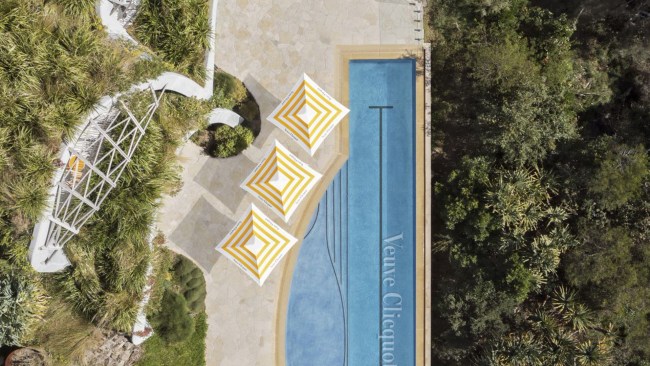
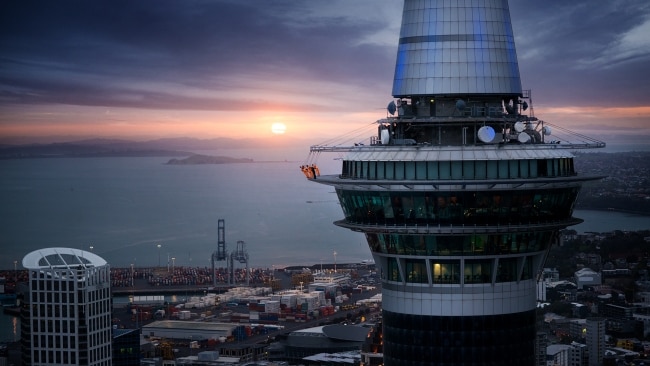
To join the conversation, please log in. Don't have an account? Register
Join the conversation, you are commenting as Logout